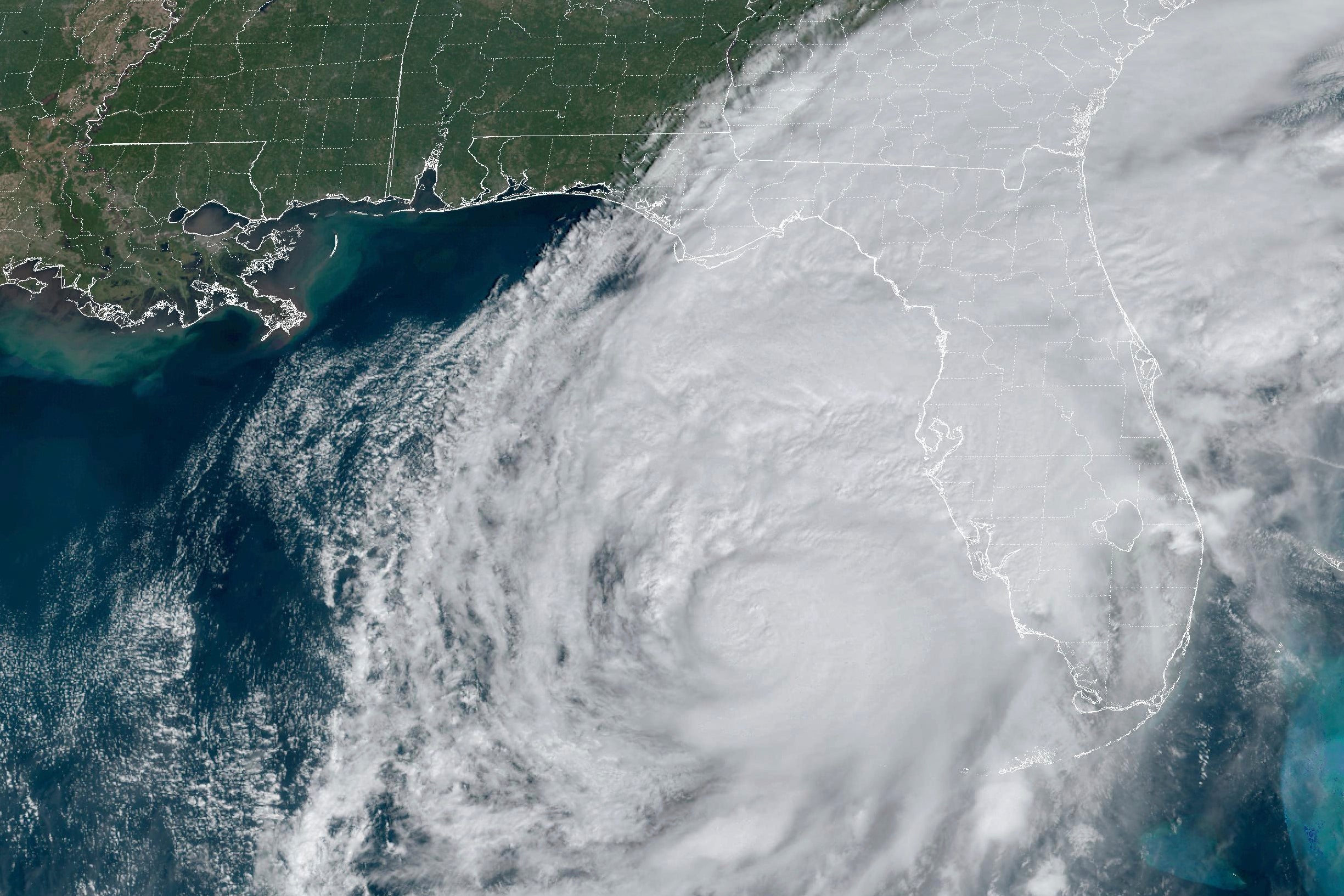Mea culpa: high winds and syntactical disorder
John Rentoul surveys some of the after-effects of the hurricanes, leaving words and phrases all over the place in last week’s Independent


Some of our hurricane coverage was a bit rushed, as might be expected, so some of our words looked as if they had been blown about. In an editorial we said: “Hurricane Beryl, for example, made landfall in June, unusually soon in the season, and was the earliest category 5 storm at that time of year on record.” I enjoyed the idea that the storm was “the earliest at that time of year”. As we had already made the point with “unusually soon in the season”, it was doubly redundant.
That editorial also included this sentence: “The Covid pandemic and a succession of bloody wars have tended to push the salience of the environmental challenge further down the global agenda, but it remains the transcendent problem facing mankind.”
Given that salience means the “leaping-out-ness” of something, from Latin salire, jump, reducing it is the same as pushing it down the agenda, so we should have just said “tended to push the environmental challenge down the global agenda”.
As for “transcendent”, that means “beyond or above the range of normal human experience”, but it is usually used to describe experiences beyond the physical world, so I think it is the wrong word here, and not just because there is too much religiosity in the way climate change is regarded by parts of the green movement.
If we wanted something more dramatic than “most important”, and given that “existential” is on the Banned List, we could have tried “highest-order”.
Out of order: An earlier article about the distant effects of a different hurricane on the UK said: “Large parts of Scotland, however, are not predicted to be affected.” Thanks to Roger Thetford, a member of the after-the-storm clean-up crew, for retrieving the misplaced “not”. It should be “are predicted not to be affected” or even better, as he suggested, “are predicted to be unaffected”.
Has it sunk in? A picture caption in a report of the lost ship Endurance said: “The wreck of Ernest Shackleton’s ship can now be seen more than a century after it sunk.” The past tense of sink is sank.
Double trouble: In a profile of Miranda Hart, we said: “For decades even the very existence of Lyme disease has been debated.” That should have been either “even the existence” or “the very existence”, but not both.
Young frights: Our IndyBest feature, which is the best consumer guide, said it had put “scary kids’ Halloween costumes to the test”. We may find those children scary, but we meant “kids’ scary Halloween costumes”.
Up in the air: On Thursday we reported: “‘Groundbreaking’ flights six times faster than speed of sound one step closer as new engine unveiled.” I have never understood why breaking ground, referring to the first dig on a building site, should have come to mean a breakthrough, but it is definitely the wrong metaphor here, as we are talking about slipping the surly bonds of earth.
Re-import: We used “gotten” five times over the past week. “Americans have gotten used to allegations in recent years of foreign interference in their elections,” we said in a report of the US election. “I can see how you might have gotten to that conclusion,” in an opinion article about intergenerational fairness. “In the decade since, the Merseyside club’s defence as a whole has gotten considerably better, as has the holder of the No 1 position,” in a football report on Liverpool. We also quoted John Lithgow, the actor, using it a couple of times in an interview.
Yes, it is an Americanism now, but it was a Britishism before that, a form imported to the New World in the 17th century and reimported after dying out here – although Mick O’Hare, who noticed this week’s football example, told me: “I have a friend who says that it has never been out of use in her rural part of East Anglia.”
Why oh why oh why? We reported the visit of Volodymyr Zelensky to Downing Street on Thursday thus: “The prime minister will welcome his Ukrainian counterpart amid Russia’s ongoing invasion.” We never need “ongoing”. We are aware that Russia is currently invading Ukraine, and that the leaders are unlikely to be discussing Tsar Alexis’s invasion of 1654. In any case the meeting will not be taking place “amid” the invasion. “Why is it so difficult to limit the use of ‘amid’?” asks Linda Beeley. It is a good question.
Subscribe to Independent Premium to bookmark this article
Want to bookmark your favourite articles and stories to read or reference later? Start your Independent Premium subscription today.






Join our commenting forum
Join thought-provoking conversations, follow other Independent readers and see their replies
Comments